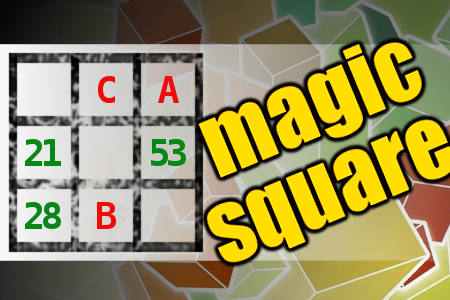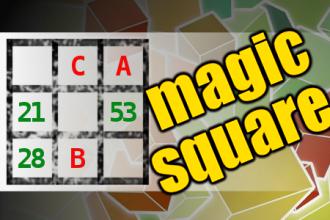MAGIC SQUARE: Calculate A*B-C
The aim is to place the some numbers from the list (12, 14, 21, 28, 30, 37, 40, 53, 55, 62) into the empty squares and squares marked with A, B an C. Sum of each row and column should be equal. All the numbers of the magic square must be different. Find values for A, B, and C. Solution is A*B-C.Correct answers: 0
#brainteasers #math #magicsquare

A knight went off to fight in...
A knight went off to fight in the Holy Crusades but before leaving he made his wife wear a chastity belt. After tightly securing it to her, he handed the key to his best friend with the instruction: "If I do not return within seven years, unlock my wife and set her free to lead a normal life."
The knight then rode off on the first leg of his journey to the Holy Land, but he had only traveled barely an hour when he was suddenly aware of the sound of pounding hooves behind him. He turned to see that it was his best friend.
"What is the problem?" asked the knight.
His best friend replied: "You gave me the wrong key."
The knight then rode off on the first leg of his journey to the Holy Land, but he had only traveled barely an hour when he was suddenly aware of the sound of pounding hooves behind him. He turned to see that it was his best friend.
"What is the problem?" asked the knight.
His best friend replied: "You gave me the wrong key."

